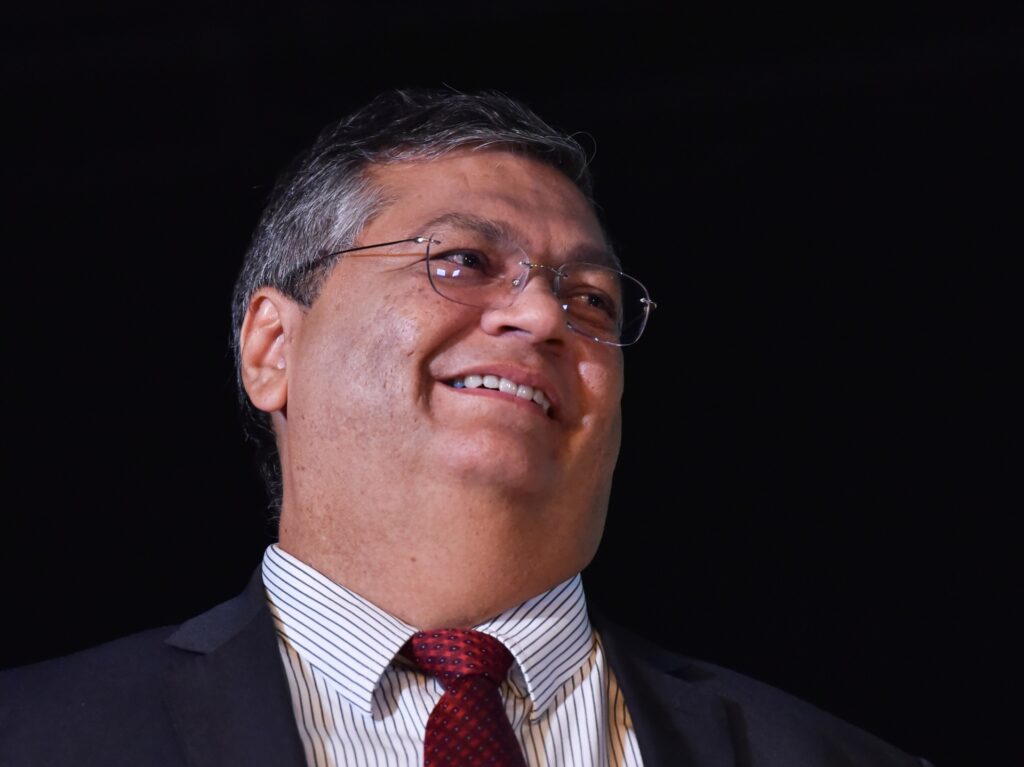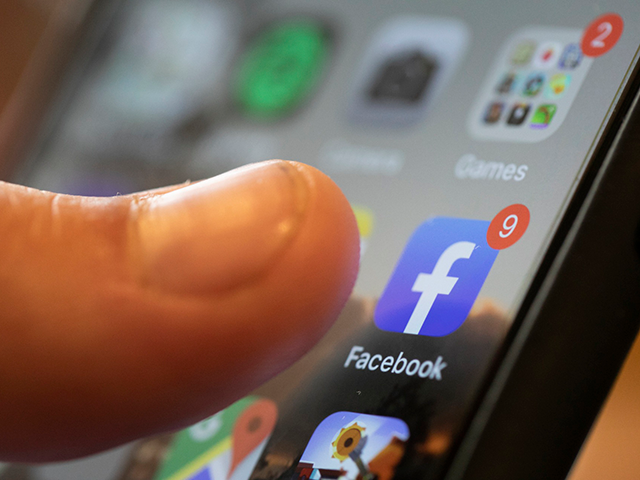Brazil’s Minister of Justice and Public Security Flavio Dino presented a bill proposal on Thursday that aims to regulate social media and punish “terrorist” and “anti-democratic” content published online.
Dino presented the bill to Brazil’s radical leftist President Luiz Inácio Lula da Silva as one of the four proposed pieces of legislation in a so-called “Democracy Package,” crafted in response to the January 8 riot in Brasilia. On that day, thousands of protesters stormed the premises of the nation’s Congress, Supreme Federal Tribunal (STF), and the Planalto presidential palace.

Justice and Public Security Ministry nominee Flavio Dino in Brasilia, Brazil, Friday, December 9, 2022. (AP Photo/Ton Molina)
Brazilian news portal UOL reported on Thursday that the proposed bill would regulate “content considered terrorist and that violates the democratic state of law” by relying on users to report “offensive” content and notifying platforms to take action against said content — such as requesting its immediate removal. The law would also hold social media sites “accountable” by requiring them to remove “anti-democratic” content without the need for a court decision.
Brazil’s top court, the Supreme Federal Tribunal (STF) typically forces social media platforms to restrict access to specific accounts with the threat of hefty fines.

Protesters, supporters of Brazil’s former President Jair Bolsonaro, storm the National Congress building in Brasilia, Brazil, Sunday, January 8, 2023. (AP Photo/Eraldo Peres)
Earlier in January, Alexandre de Moraes, the head of STF and a self-styled “anti-fake news” crusader, requested that Facebook, TikTok, and Twitter block access to a group of accounts and to give the court the accounts’ full registration data. The sites had two hours to comply with the demand before being fined.
According to the Brazilian news network Jovem Pan, the four-piece “Democracy Package” also contains another bill pertaining “crimes against the democratic rule of law” and a third bill to expedite “the loss of assets for those who commit crimes against the democratic rule of law.” The package finally proposes a constitutional amendment related to the functions of the Brazilian National Guard that, according to the Brazilian newspaper O Globo, would create a new guard under Brazil’s Ministry of Justice specialized in policing to contain demonstrations and “invasions” such as the events that took place January 8.
Minister Flavio Dino argued that social media platforms played a “fundamental role” in the January 8 events. On Thursday, during a joint event between members of Brazil’s Ministry of Justice and members of the nation’s state secretariats, Dino defended the idea of regulating online platforms, stating that the internet cannot be an “anything goes” territory and expressing the need for the creation of “legal obligations” for digital platforms.
“There is no freedom of expression for those who commit crimes,” Dino said. “There is no freedom of expression for those who want it destroyed. Internet cannot be a territory for the free birth of criminals,” he added.
Dino was a member of the Communist Party of Brazil for 15 years until 2021, when he joined the ranks of the Brazilian Socialist Party. Shortly before taking office, Dino had referred to the protesters that challenged the results of Brazil’s 2022 presidential election as “incubators of terrorism.”
The justice minister was also recently the center of a controversy after anchors from a radio show broadcast by the local station Rádio Guaíba on January 17 described him as an “hypocrite,” an “obese communist,” and “Dinosaur family” in reference to the American sitcom Dinosaurs that aired between 1991 and 1994.
“Dino, that one is total hypocrisy. Nothing against obese people, but he is an obese person,” said one of the radio show’s participants. “And an obese communist is something. Three or four families could eat with what he eats daily.”
Dino reacted one day after the comments were made through his Twitter account, demanding the radio show retract their “criminal” comments.
“I heard that on a radio station in [Social Media] they made aggressive, prejudiced, and criminal comments against me. I expect retraction,” Dino said. “In any case, I do not envy the squalor of people who need a Penal Code, a Code of Ethics, and a mirror. “
Soube que em uma rádio do RS se dedicaram a comentários agressivos, preconceituosos e criminosos contra mim. Espero retratação.
De todo modo, adianto que não invejo a esqualidez de pessoas que precisam de Código Penal, Código de Ética e um espelho.— Flávio Dino 🇷 (@FlavioDino) January 18, 2023
Christian K. Caruzo is a Venezuelan writer and documents life under socialism. You can follow him on Twitter here.

COMMENTS
Please let us know if you're having issues with commenting.